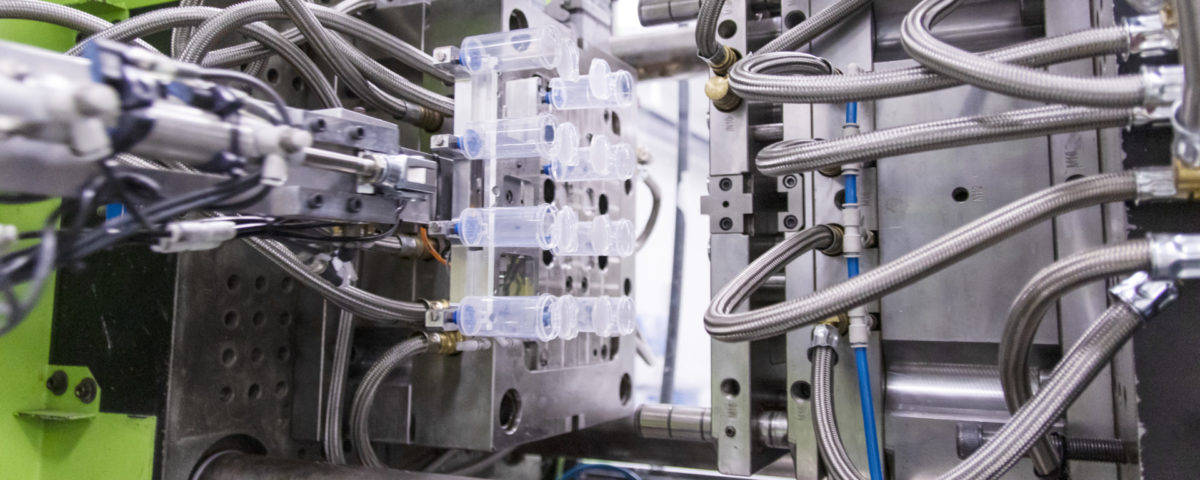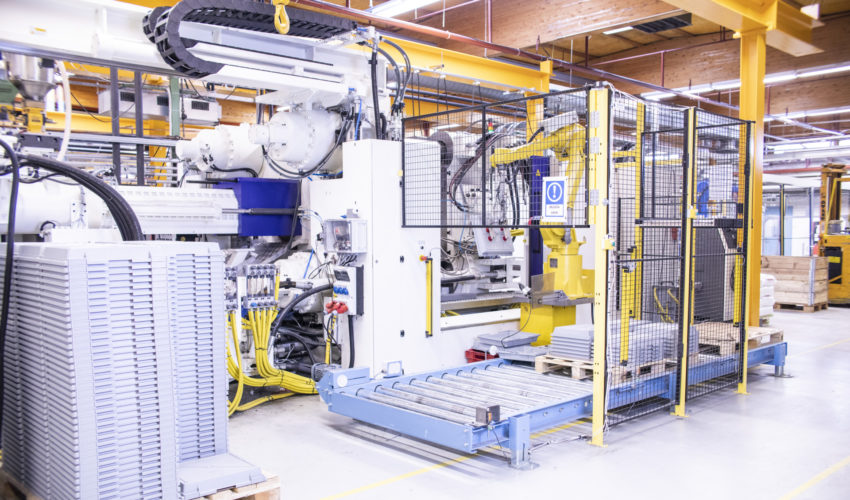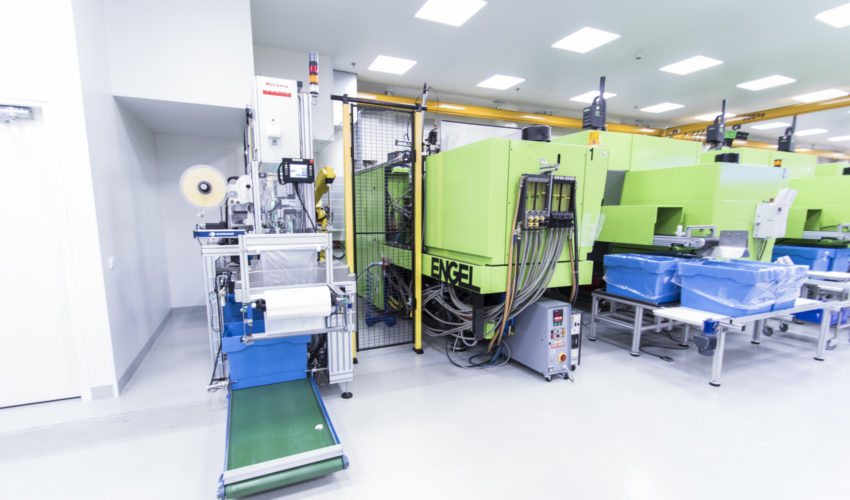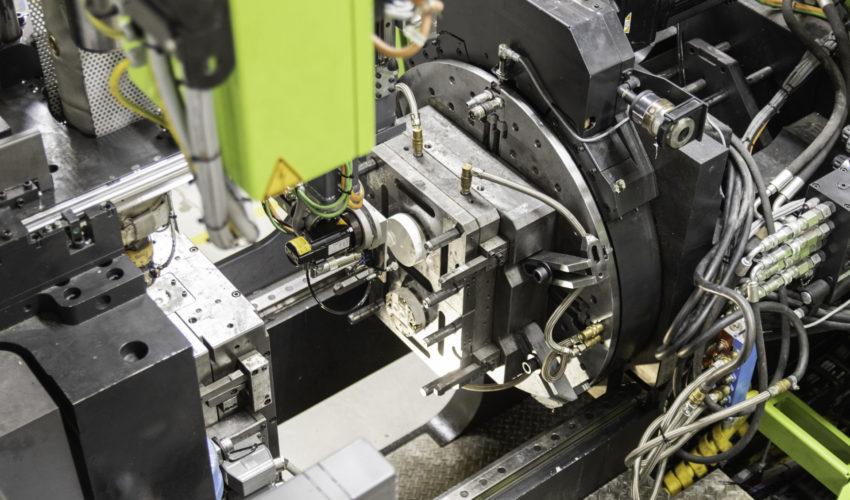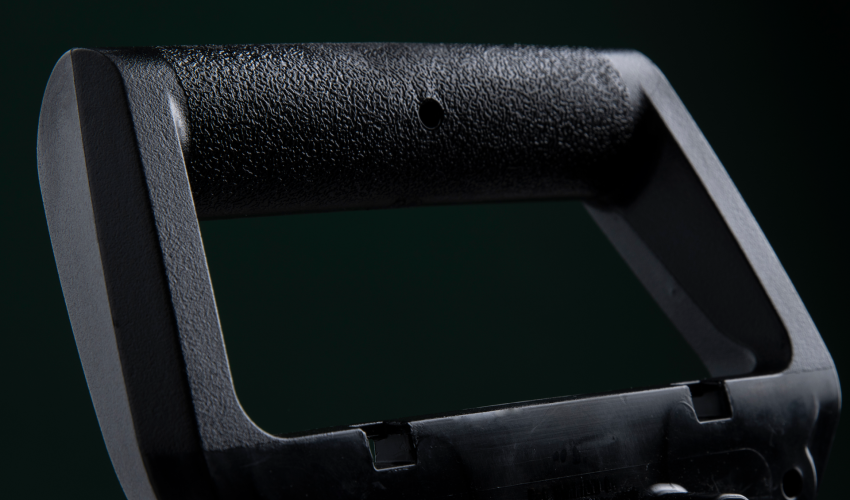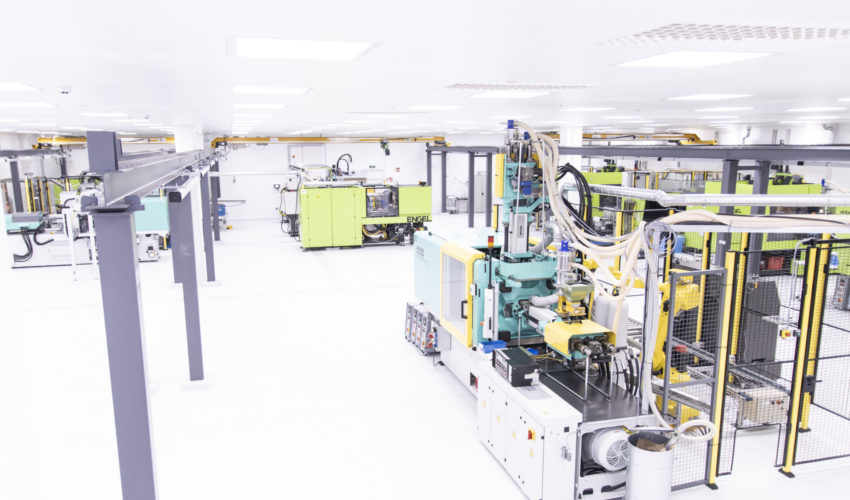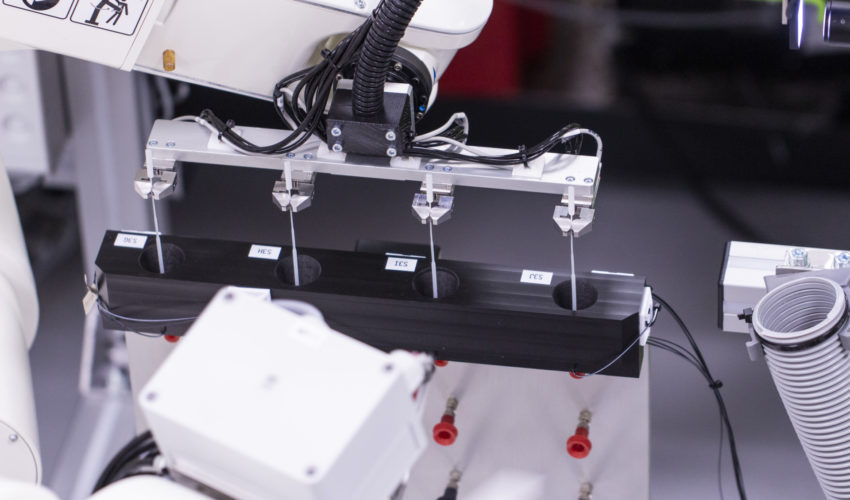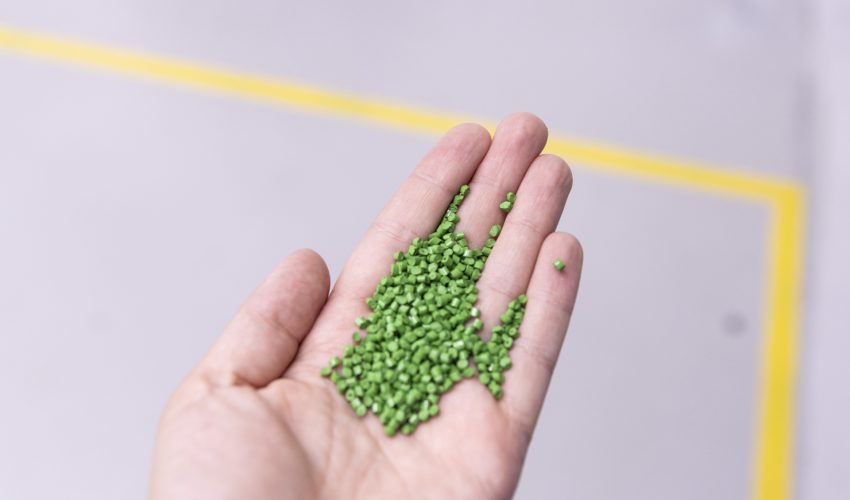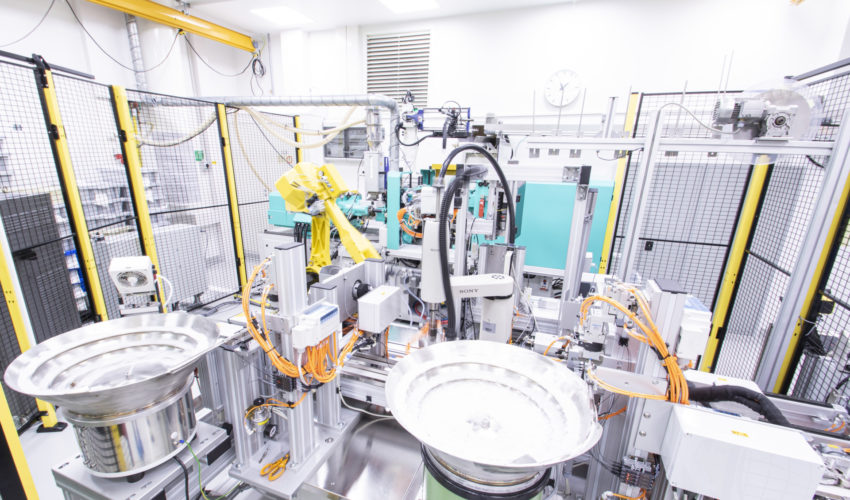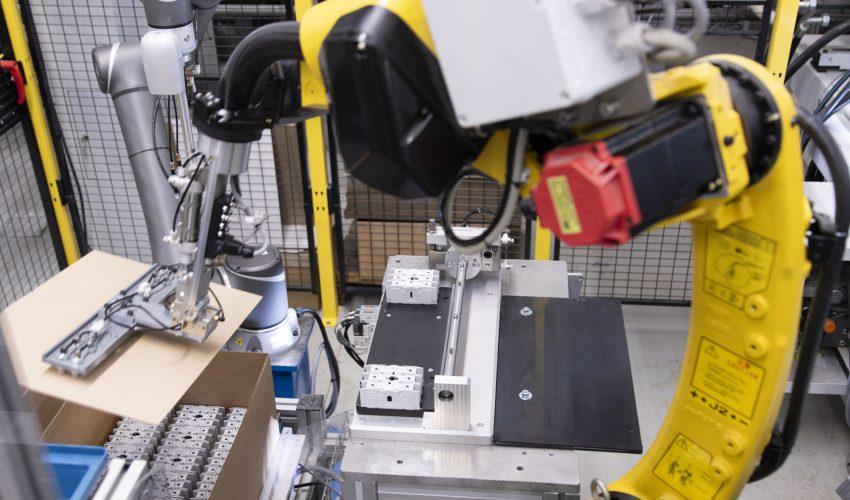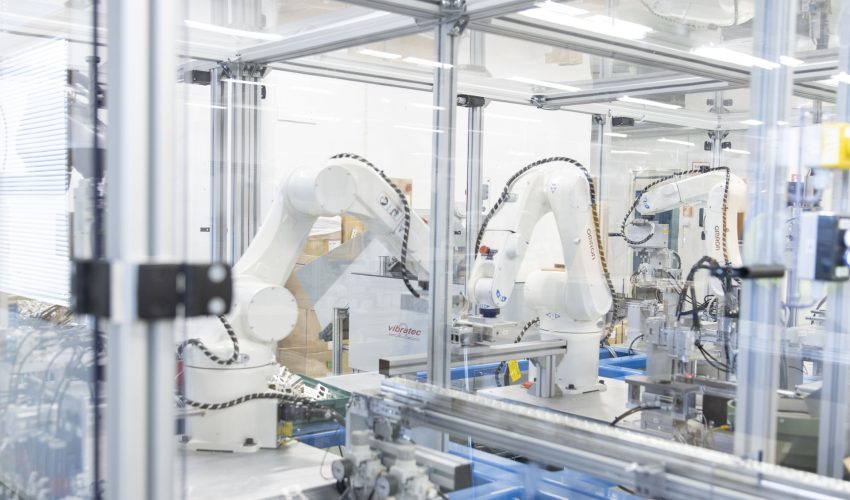Plastic
Our expertise in contract manufacturing of plastics products arches over decades. We adopt new technologies quickly and we expand our technology portfolio constantly. Combining metal and plastics and the contract manufacturing of medical devices are the highlights of our plastics technologies. Customer-specific automation solutions built by our own automation department add the final touches to our production.
All of our plastics manufacturing technologies are offered by Valukumpu.
Diverse machinery
Our broad and modern injection moulding machine lineup is the baseline for our injection moulding technologies. Challenging, precision engineered components are manufactured with our long experience in precision injection moulding. With machinery of 1080 tonnes of closing power, we can manufacture large products up to 6 kilograms. Our special expertise in reel-to-reel injection moulding, and combining metal and plastics broaden the user applications of the products of our customers. Reel-to-reel is a cost-effective technology with very large volumes. The other advantage of reel-to-reel is the effective further processing, for example with different automation applications, like assemblies. Combining metal and plastics makes the manufacturing of different connector products possible, especially with our self-sufficiency in different plating technologies in the same factory.
Multi-component injection moulding (2K/3K injection moulding)
Different product qualities such as sealing properties, softness or hardness and excellent durability can be achieved with multi-component injection moulding. Multi-component injection moulding means combining different plastic materials in a single product, in its different parts and structures. In our factory, the process is done with one injection moulding machine with a rotating mould, in a fully automated unit. With our current machinery, we can combine even up to three different plastics with a smooth process.
Gas-assisted injection moulding
Products with hollow shapes can be manufactured with gas-assisted injection moulding. In this process, the plastic material is guided typically with nitrogen gas against the mould in desired locations, creating either thick or thin-walled shell-like structures. This production technology can be applied with products that require high strength, hollow structures and the smallest possible amount of material used.
Clean room production of medical devices
Clean room production enables the manufacturing of medical devices, among other sensitive products. In clean room production, the production space is monitored and controlled on areas like the amount of changing air, air humidity, temperature and different particles and bacteria. To compare, it’s worth observing that in so-called “normal rooms”, there are millions of particles, when in turn in ISO class 7-spaces, there is a maximum of 352 000 pcs of ≥0.5µm particles. Typically, in a beforementioned space, the air is exchanged/filtered from 30 to 60 times an hour. For injection moulding production, we have around 1000 m2 of ISO class 7 space and around 700 m2 of ISO class 8 space.
The manufacturing processes in our clean room production are ISO 13485 certified. The certificate ensures the compliance with the strict requirements in the contract manufacturing of medical devices. The monitoring and controlling of the operations is done by the directives of the ISO 13485 certificate.
Broad material selection of more than 200 different plastics
Our broad material selection allows the different user environments and requirements to be taken into account. The material choices affect the eco-friendliness and mechanical features of the product. We offer assistance in the choice of the right materials with over 40 years of experience.
Roughly put, plastic materials can be divided into two categories, thermosets and thermoplastics. Different desired product features can be achieved with the two different types of plastics. Thermosets can be moulded only once, thus making them less environmentally friendly. Thermosets are stronger than thermoplastics, that can be recycled and re-moulded. Thermosets also withstand heat better than thermoplastics. The big advantage of thermoplastics, especially today, is the recyclability of the material.
Designing and manufacturing automation
Our in-house automation department was founded in 2018. Thus, we are self-sufficient with different automation projects. We are able to design and manufacture automation cells and units completely according to the requirements of the customer or product. The long experience and diverse know-how of our automation department in manufacturing, assembly and testing guarantees successful automation solutions for our customers, as well as our own needs. Automation solutions can resolve the manufacturing issues of stages requiring high repetitive accuracy. Ensuring high competitiveness on international markets requires fundamental knowledge of automated manufacturing technologies.
